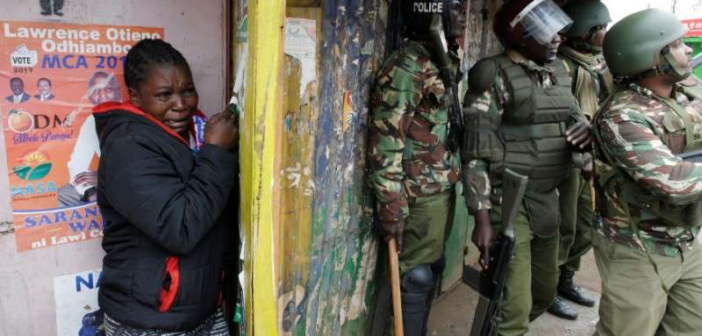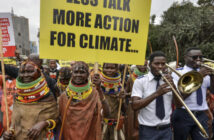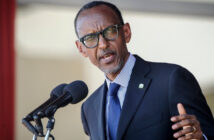Violent protest in the aftermath of the re-election of President Uhuru Kenyatta of Kenya has left any dead, a reverberation of post-election ethnic violence a decade ago in which 1,200 people died nationwide.
A young girl was killed by a stray bullet, nine bodies with gunshot wounds were brought overnight to the capital’s main morgue, and a watchdog group said police gunfire has killed 24 people since Tuesday’s disputed vote.
The Kenya Red Cross Society said it picked up 93 people injured by the violence. MSF Kenya, which has its own ambulances and involves figures not counted by the Red Cross, reported 54 people were treated at its clinics, raising the toll to at least 150 wounded.
Police on Saturday fired live bullets and tear gas on protesters in volatile areas of Nairobi and other parts of the country, provoking anger from opposition supporters and condemnation from human rights activists.
The Kenya National Commission on Human Rights, which monitors government institutions, described as the “unlawful and unacceptable” use of excessive force. Seventeen of the two dozen people shot by police died in Nairobi, the commission said. It cited allegations of police breaking into homes, beating people, threatening them with rape and demanding money. The watchdog group also lamented “the destruction of private property by both civilians and allegedly by security personnel in the course of their duty.”
Kenya faced its third successive disputed election after the opposition National Super Alliance claimed its candidate, Raila Odinga, won but Kenyatta, the incumbent, that the election commission’s database had been hacked and results were manipulated against Odinga.
Kenyatta won with a decisive 54 percent of the vote to nearly 45 percent for Odinga, but the bitter dispute over the integrity of the election process tempered what many Kenyans had hoped would be a celebration of democracy in a regional power known for its economic promise and long-term stability.




